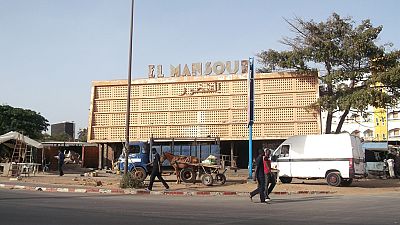Senegal
Senegal is keen to revive its ailing film industry that was once a thriving sector.
Most of the country’s main cinemas remain closed today this is despite producing some of the most renowned filmmakers on the continent.
Some remain abandoned, covered in debris
Film makers are now calling for cinema halls to be reopened to help revive the industry.
“We need to go back to the basics of cinema education, even at schools. We should go back because we cannot discuss cinema without cinemas. We need movie theatres. It’s almost an obligation. I am sure that today, Senegalese people would want to go,” said Oumar Sall, director of local production company Cinekap, who also co-produced Felicite.
Despite Senegal having six films competing at this year’s FESPACO, Senegalese filmmakers lament on missed opportunity for local audiences to see home grown movies.
Experts blame new technology as well as lack of funding and resources for the ailing film industry.
Filmmaker and professor Christian Thiam says, “Festivals are all well, but we don’t make films for festivals. We make films for the general public and we want them to have access to it. So you know, yes, we need movie theatres where they’ll show our films, we need our TVs to play their role and actually show the films.”
The government is now working on renovating on renovating some cinemas.
“We plan to finance private operators to renovate these cinema halls and make them suitable because the older halls are no longer what the people want today, because they were very big. So today, we have to make them convenient, as it’s being done around the world, to have halls with 200-300 seats, with three or four of them that can offer a diverse programs,” said Hugues Diaz, of the state cinematography department.
The state has also found several local investors to finance new cinemas. Organisers hope to see them up and running within the next two to three years.
Reuters














01:06
China, Senegal pledge stronger strategic partnership during Beijing talks
02:20
John Cena and Idris Elba-starring action film "Heads of State" premieres in New York
02:16
High-octane Formula One racing drama premieres in New York
02:18
New York research centre celebrates 100 years of documenting Black culture
01:43
TikTok star Khaby Lame plays soccer in Brazil after US detention
02:18
Nigerian animation shines at Annecy Film Festival